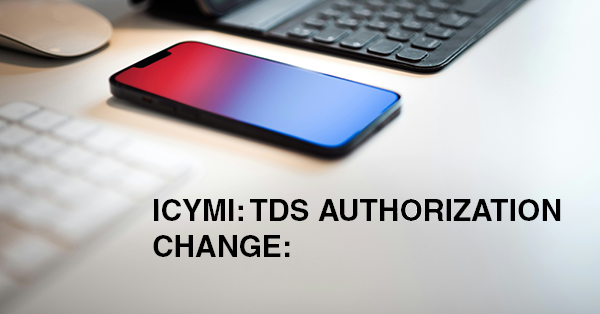NTA BLOG: NATIONWIDE TAX FORUM FAQS – PART TWO

Top Questions from the NTA Town Hall Series and Resources – Just for You! Erin Collins, NTA
Tax professionals and our tax industry partners are the backbone of tax administration. That is why I hosted Town Hall listening sessions at the IRS’s Nationwide Tax Forum this summer. Hearing the questions, issues and concerns of the tax professionals who attended is an important tool that my team and I at the Taxpayer Advocate Service (TAS) are using to advocate for taxpayers more effectively.
We heard a lot of common questions that popped up in each of the five tax forums. In Part One of this blog, we explored some of the top pandemic-related questions and provided resources to help taxpayers and tax professionals navigate their ongoing problems. Here, in Part Two, we will focus on questions that involve general tax return preparation and processing, concerns about some IRS forms, notices, and letters, and provide more helpful resources.
- Tax Return Preparation and Processing, and Notices/Letters Questions
- Incorrect Form 1099-K
- Identity Theft: For taxpayers who were victimized by tax-related IDT it is important to understand that it is generally taking the IRS more than a year to resolve these cases. TAS will continue to advocate that this process be expedited to assist these victims, and I believe the IRS should do more to help these individuals with non-tax related impacts.
- Deceased Taxpayers and Taxpayers Improperly Identified as Deceased
- Issues with Online Services
- If the authorized third party is a reporting agent, who is authorized to prepare and sign employment tax returns, they are assigned a five-digit electronic filer identification number (EFIN). If the reporting agent needs a replacement EFIN, they should call the e-help Desk at 866-255-0654. We also suggest planning ahead if reporting agents need a replacement EFIN instead of waiting during the heat of the filing period when phone lines are busiest.
- How to Submit a Power of Attorney (POA)
- For a quick reminder, each of those “new” tools has a submission method with a unique set of signature rules such as:
- Forms submitted by fax or mail must have ink signatures;
- Forms submitted through the online portal must be signed by all parties electronically or with an ink signature; and
- Authorization requests submitted through the Tax Pro Account are paperless; representatives authenticate their identity and initiate an authorization request through their Tax Pro Account to the client and receive confirmation of successful submission. The client must then approve or reject the request through their personal online account.
- However, many tax professionals do not have or are not fully using their Tax Pro Accounts. The good news here, the IRS recently added new features to the Tax Pro Account, with more functionality coming in the next year that should provide tax professionals with more useful online tools to assist their clients more efficiently.
- For a quick reminder, each of those “new” tools has a submission method with a unique set of signature rules such as:
Conclusion
It takes all of us to identify issues and opportunities for improvement. I believe by working together we can fix the challenges that exist in our tax system. That’s why we need your feedback, like we got during the tax forums, from the tax professionals who work, day in, day out, with taxpayers who are experiencing the repercussions of various problems.
I want to encourage our partners across the tax industry to let us know about what’s going on out there and not only tell us the problem but your solution as well. The bottom line – if you don’t tell us about these problems, we can’t help fix them. Sort of like the Transportation Security Administration’s motto, “if you see something, say something.”
Submit Your Issues to the Systemic Advocacy Management System
When you experience an issue that impacts the tax administration system as a whole or affects multiple taxpayers, you can report the issue using our Systemic Advocacy Management System (SAMS). This is how you can help TAS tackle the “big picture” problems in the IRS or the tax law.
A systemic issue may involve an IRS system, policy or procedure, or may involve protecting taxpayer rights, reducing burden, ensuring fair treatment, or providing essential taxpayer services. We want to hear from you, so visit our website to submit a systemic issue into SAMS and read our FAQs for more information about SAMS.
Click here to access her complete article.




